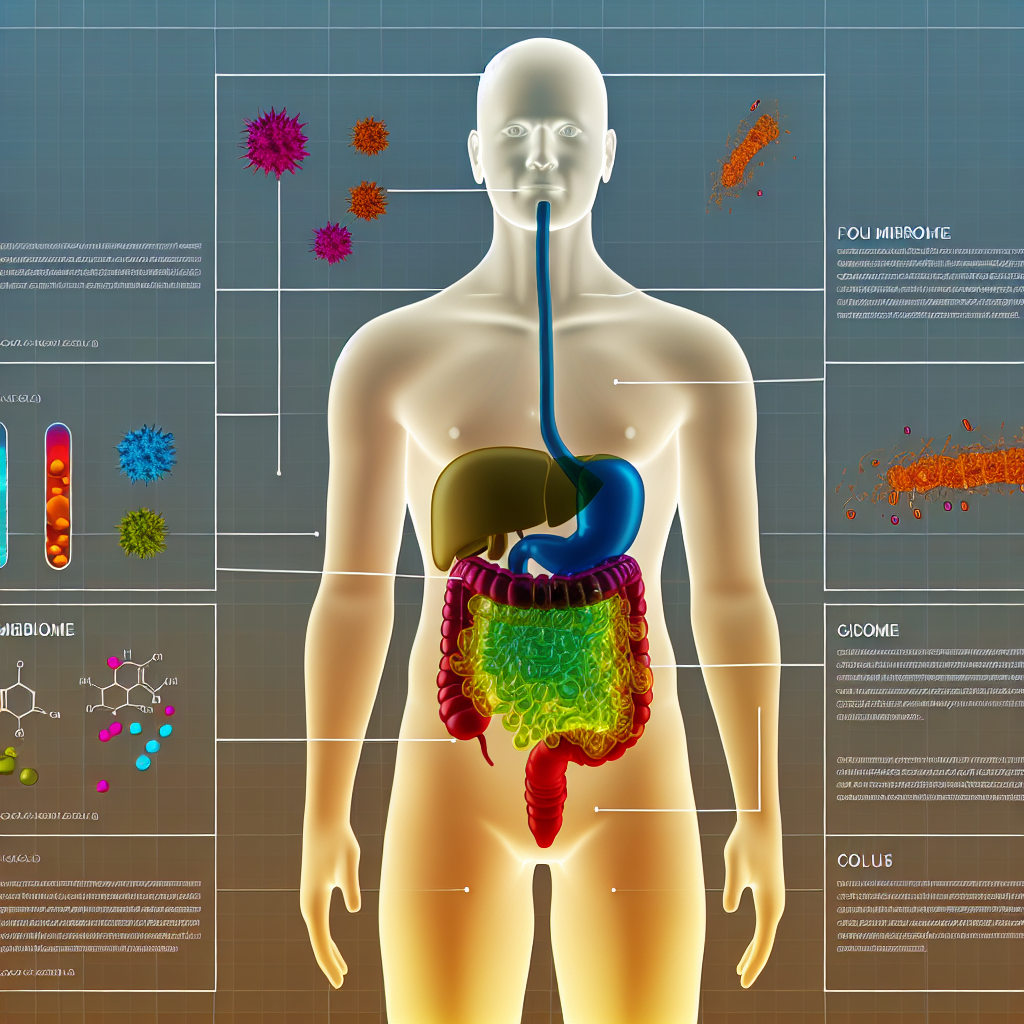# Gut Health During Travel: Strategies to Maintain Microbiome Balance Abroad
Travel is exciting, but your gut might not agree. Discover research-backed herbal and lifestyle strategies to keep your digestion in top form—no matter where the road takes you.
## Introduction
Travel can be a transformative experience for the mind and soul—but it isn’t always as kind to your gut. Whether you’re jet-setting across continents or road-tripping through scenic landscapes, your digestive system can quickly fall out of sync when faced with time zone changes, unfamiliar foods, irregular sleep patterns, and increased stress levels. For individuals with sensitive guts, Irritable Bowel Syndrome (IBS), or existing gastrointestinal conditions, maintaining gut health while traveling is not just about comfort—it’s essential for physical well-being.
Your gut microbiome—home to trillions of bacteria, fungi, and other microorganisms—plays a vital role in digestion, nutrient absorption, immune function, and even mental health. Disruption to this delicate ecosystem can result in symptoms like bloating, constipation, diarrhea, and indigestion, commonly referred to as ‘traveler’s constipation’ or ‘traveler’s diarrhea.’
The sudden shift in lifestyle during travel is one of the major contributors to microbial imbalance. Exposure to unfamiliar pathogens in drinking water or local cuisine, lack of dietary fiber on-the-go, and fluctuations in circadian rhythm can all disturb the resident bacteria that maintain gastrointestinal harmony. For this reason, gut-conscious travelers are increasingly searching for natural strategies and herbal treatments to support gut symmetry while abroad.
There’s also a growing body of scientific evidence backing certain herbs and lifestyle habits that can safeguard the gut microbiome against travel-induced disruptions. From natural antimicrobials and prebiotic-rich foods to adaptogenic herbs that regulate stress, these remedies offer an effective, holistic approach to digestive health. Additionally, advanced probiotic delivery systems and shelf-stable formulations are making gut support more travel-friendly than ever.
In this article, we’ll explore science-based strategies and natural treatments to preserve your microbiome while traveling. Drawing on the latest research in gastroenterology and functional medicine, we will highlight herbal allies, gut-friendly travel hacks, and practical diet tips—equipping you with everything you need for a healthier, more comfortable journey.
## 🌍 Probiotics on the Go: Your Gut’s Best Travel Companion
Probiotic supplementation during travel is one of the most well-supported strategies for maintaining gut balance. A study published in The Travel Medicine and Infectious Disease Journal (2020) found that certain strains of Lactobacillus and Bifidobacterium were effective in reducing episodes of traveler’s diarrhea and antibiotic-associated gut dysbiosis.
Shelf-stable probiotic capsules—especially those formulated with enteric-coated technology—can survive harsh travel conditions and stomach acid, ensuring that beneficial bacteria reach the gut.
Recommended travel-friendly strains:
- Lactobacillus rhamnosus GG
- Bifidobacterium lactis
- Saccharomyces boulardii (a probiotic yeast effective in preventing traveler’s diarrhea)
## 🥦 Feed Your Flora: Prebiotics and Herbal Fiber to the Rescue
Prebiotics are nondigestible fibers that feed good gut bacteria. While fiber intake often drops during travel due to processed or fast foods, integrating plant-based options like bananas, chicory root, garlic, and artichokes can help nurture your microbiota.
Herbal sources such as slippery elm and psyllium husk provide gentle, bulking fiber that supports motility and microbial diversity without harsh laxative effects.
A 2019 study in Nutrients Journal confirmed that consistent prebiotic intake enhances the growth of butyrate-producing bacteria—powerful protectors of gut lining and inflammation control.
## 🌿 Herbal Power: Natural Antimicrobials & Adaptogens for Travel Immunity
Digestive herbs like ginger, peppermint, and fennel offer centuries-old relief for bloating, gas, and sluggish digestion. Ginger, in particular, has been repeatedly validated for reducing nausea and enhancing gastric motility.
When traveling in regions with questionable food safety or water quality, herbal antimicrobials like berberine, oregano oil, and garlic can offer added protection. Berberine, sourced from plants like Berberis vulgaris, has shown broad-spectrum activity without harming good bacteria when used responsibly.
Meanwhile, adaptogens such as ashwagandha and holy basil (tulsi) help calm travel-related stress, protecting the gut-brain axis. Elevated cortisol levels from stress can impair gut permeability—a phenomenon known as “leaky gut.”
## 💧 Hydration Hacks: Safe Water and Soothing Herbal Teas
Dehydration is a stealthy gut saboteur. It slows digestion, causes constipation, and irritates your intestinal lining. Herbs such as licorice root and marshmallow root offer mucilaginous compounds that soothe the gut lining and retain hydration.
Always bring a portable water filter or stick to bottled water in areas lacking sanitation reliability. Boost hydration with supportive herbal teas like:
- Chamomile – calms the gut and supports sleep
- Mint – eases bloating and cramping
- Rooibos – antioxidant-rich and caffeine-free
A 2014 study in Phytomedicine shows chamomile’s potential in gastric healing and reducing smooth muscle spasms.
## ⏰ Resetting Your Rhythm: Gut-Smart Ways to Handle Jet Lag
Time zone shifts can throw your digestion into turmoil. Emerging research in The International Journal of Molecular Sciences (2020) reveals that gut bacteria follow a circadian rhythm influenced by melatonin and eating patterns.
To reduce digestive discomfort linked to jet lag:
- Take melatonin before bedtime to recalibrate sleep cycles
- Expose yourself to natural light during the day
- Drink chamomile tea before sleep to wind down naturally
Maintaining regular meal timings once you arrive in a new time zone can also help your microbiome reset appropriately.
## Final Thoughts: Give Your Gut the Green Light While You Travel
The connection between travel and gut disruption is clear—but the good news is that with intentional planning, you can protect your gut and enjoy your adventures in full digestive comfort.
By optimizing your diet, incorporating selective herbal strategies, and supporting your body’s stress response, you’re giving your microbiome the resilient tools it needs to adapt. Many of these natural interventions—now supported by scientific literature—are not only alternatives to medication but powerful allies in maintaining digestive and immune well-being.
Whether you’re exploring exotic markets or scaling mountains, remember: a happy gut is a happy traveler.
So pack your probiotics, steep your herbal teas, and take your wellness journey with you—gut first!
## 📚 References
– [McFarland LV. “Antibiotic-associated diarrhea: epidemiology, trends and treatment.” Nat Rev Gastroenterol Hepatol. 2021.](https://www.nature.com/articles/s41575-021-00464-6)
– [Ouwehand AC, et al. “Use of probiotics during travel: results of a meta-analysis.” Travel Med Infect Dis. 2020.](https://doi.org/10.1016/j.tmaid.2020.101497)
– [Gibson GR, et al. “Dietary prebiotics: current status and new definition.” Food Science & Technology Bulletin: Functional Foods. 2017.](https://doi.org/10.1177/1142187)
– [Wang Y, et al. “Plant-based berberine: antimicrobial and prebiotic effects.” Front Microbiol. 2021.](https://www.frontiersin.org/articles/10.3389/fmicb.2021.651267/full)
– [Zeng H, et al. “Circadian control of the gut microbiome.” Int J Mol Sci. 2020.](https://doi.org/10.3390/ijms21186621)
– [Srivastava JK, et al. “Chamomile: A Herbal Medicine of the Past with Bright Future.” Mol Med Report. 2010.](https://doi.org/10.3892/mmr_00000393)
Concise Summary:
Maintaining gut health during travel is crucial, as the sudden changes in diet, sleep patterns, and stress levels can disrupt the delicate gut microbiome. This article explores science-backed strategies and natural treatments, including probiotics, prebiotics, herbal remedies, and hydration tips, to help travelers keep their digestion in top form while on the go.

Dominic E. is a passionate filmmaker navigating the exciting intersection of art and science. By day, he delves into the complexities of the human body as a full-time medical writer, meticulously translating intricate medical concepts into accessible and engaging narratives. By night, he explores the boundless realm of cinematic storytelling, crafting narratives that evoke emotion and challenge perspectives.
Film Student and Full-time Medical Writer for ContentVendor.com




